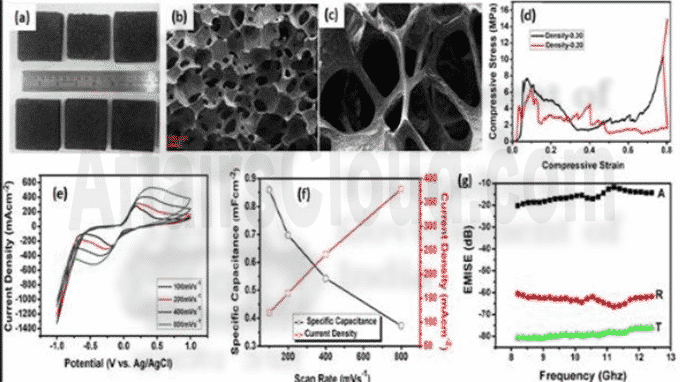 On May 15, 2020, Dr. Rajeev Kumar of the Council of Scientific and Industrial Research -Advanced Materials and Processes Research Institute (CSIR -AMPRI), who received the Inspire Faculty Award, constituted by the Department of Science and Technology (DST), Government of India (GoI), has developed a porous lightweight carbon foam with a density of less than 0.3g/cc that can replace lead-grids in lead acid batteries.
On May 15, 2020, Dr. Rajeev Kumar of the Council of Scientific and Industrial Research -Advanced Materials and Processes Research Institute (CSIR -AMPRI), who received the Inspire Faculty Award, constituted by the Department of Science and Technology (DST), Government of India (GoI), has developed a porous lightweight carbon foam with a density of less than 0.3g/cc that can replace lead-grids in lead acid batteries.
Key Points:
i.About the carbon foam:
- The carbon material, which has more than 85% quite porous and has good mechanical strength, is non-toxic, easy to make, economical, and insoluble in water
- The raw material used to make carbon foam is easily available everywhere, and there is no expensive equipment needed to make it and its filtration.Such material can be used without any danger in remote areas where there is less power supply.
ii.Benefits:
- It can be used as an electrode for heat sinks in power electronics, electromagnetic interference shielding in aerospace, hydrogen storage and lead acid batteries and water purification systems.
- It would also be quite economical in separating arsenic, oil and other metals from contaminated water.
iii.The study has been published about 16 research papers in highly reputed scientific journals since the year 2016. However it gained attention recently due to the foam’s potential utilization in various fields.
iv.Background: People are heavily dependent on energy storage systems such as lead acid batteries in automobiles and homes as they are quite most reliable, economical, and environmentally friendly. However electrodes in such batteries suffer from the problem of heavyweight, corrosion, poor thermal stability, and diffusion of electrolytes in one dimension, which ultimately affects the output power.
About Advanced Materials and Processes Research Institute:
Location– Bhopal, Madhya Pradesh
Director– Dr. Avanish Kumar Srivastava




